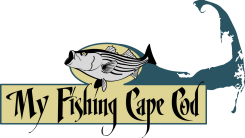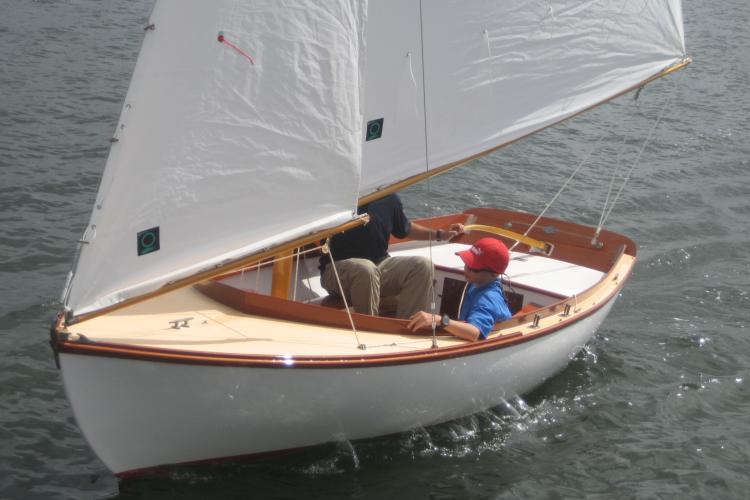
Hello My Fishing Cape Cod! My name is Doug Peebles and I've been a member of My Fishing Cape Cod since August of 2020.
I split my fishing time between Cape Cod and Florida, and I often fish alone 10-20 miles offshore. Recently I emailed Ryan to let him know about a new kill switch regulation which is starting on April 1, 2021.
More...
New federal regulations will require that:
Boaters are not required to us a kill switch if:
Sources:
Information in the table above was obtained from New Boating Law Requires Use Of Engine Cut-Off Switches (ECOS).
Additional information can be obtained from:
Engine kill switches are important to protect against the boat running out of control if the operator falls overboard.
In this post we'll talk about kill switches, as well as other items that can help improve your boating and fishing safety.
Background
Before I dive into this blog post, I figured I would share just a little background information to help you get to know me better.
One of my first memories is of sitting in the bottom of a Herreshoff H-12½, acting as ballast, with my towhead popping through the top of an old-fashioned, billowing orange life preserver.
Sailing near shore, with lots of other boats around, and over 700 pounds of lead in the keel, the stable gaff-rigged "Buzzards Bay Boys Boats" ply the waters of nearly every New England harbor.
Those venerable sailboats were and are very safe.
The Herreshoff H-12½ is regarded as one of the finest small boat designs ever. Photo courtesy of Cape Cod Shipbuilding.
Years after I learned to sail, I had fun chasing bluefish around the Cape's harbors in my family's 13 foot Whaler.
Safety was not foremost on my mind. After all, I was an invincible teenager! But I still wore that massive orange life jacket, because my Dad insisted.
Since those early years, a lot has changed, except for my desire to be out on the water. When on Cape I still enjoy fishing for bluefish and stripers, as well as the exotic albies and bonita.
Now retired, I spend a bit more than half the year in South Florida.

The variety of fish to chase inshore in Florida is stunning, with even bluefish showing up occasionally.
But there's something wonderfully transcendent about heading offshore beyond the sight of land, especially alone.
Whether I'm fishing south of the Vineyard or into the Gulf Stream, it's a whole different world out there.

Enormous pods of jumping dolphins abound. Whales, sea turtles, basking sharks and other huge fish break the surface.
Gulls, gannets, shearwaters and frigate birds guide you to feeding fish.

But beyond these wonders, safety is one thing that often comes to mind when one is far at sea.
1) Use Your Kill Switch
Starting April 1, 2021, new federal regulations require use of a kill switch on all power boats under 26 feet. My boat came standard with one, and has a lanyard and clip which I'd put around my leg.
Engine kill switches are important to protect against the boat running out of control if the operator falls overboard. Many people are killed or injured every year by being run over by an unoccupied boat, sometimes by their own circling boat that they just fell out of!
The problem I had with the lanyard system is that it was difficult to react quickly and detach it when running and gunning after feeding schools of fish.
It was also impossible to keep tending a spread of lines (usually seven, even when I'm alone) when trolling with my leg tied to the console. Yet I wanted a good kill switch so I would at least have a chance at swimming back to the boat in the event I fell overboard.
Several manufacturers make wireless systems that comply with the new regulation. Recently I bought and installed a Fell Marine MOB+ for a few hundred dollars.

It comes with a small fob that turns the engine off when it senses water, or if it is more than 50 feet from the hub installed in the console. I keep my fob in my pocket, but you can also attach it to a wrist band.
Extra fobs for crew members are available which will not kill the engine, but will sound a loud alarm if a crew member disappears overboard.
Unfortunately this happened just recently in Stuart, Florida.
A bunch of pals went fishing, and when they came back they noticed one guy was missing. They never heard a sound. The Coast guard found his body eight miles offshore.
2) Send Someone Your
Float Plan
My wife is very concerned about me when I head offshore, and I share in her concern.
That is one important reason why I always text her my Float Plan before I leave the dock.
A text like...
"Heading 12 miles off power plant at noon, trolling south for 3-4 hours in 150-200 feet of water. Back by 5,"
or...
"South of Nomans- Inside Fingers down to the Claw by 10, over to Coxes Ledge, back by 4".
I text her enough information to let her know when to think I'm late, and to give the Coast Guard an idea of where to look for me.
3) Wear a Proper PFD
The old orange life preserver, thank goodness, has gone the way of the Dodo. Now-a-days, PFD's (personal floatation devices) come in many flavors.
Mine is an Onyx A/M 24 Deluxe. It has manual inflation with a CO2 cartridge which automatically self-inflates if it senses being submerged in water.

I replace the CO2 cartridge each year. The PFD also has two pockets which I find very useful.
In one pocket is a good whistle on a lanyard, and an ACR ResQLink+ PLB. This device is a personal locator beacon, similar to an Epirb.


In the other pocket of my PFD is my Uniden Atlantis 275 handheld radio. Both are waterproof; both float.
If an unexpected wave knocks me over board and I can't get back to the boat, at least I have a chance at rescue with these devices.
4) Invest In a Life Raft
Years ago, my wife and I crossed the Gulf Stream many times running over to the Bahamas. Going on a tropical cruise is more to her style; offshore fishing, not so much.
I had heard stories of boats running into tree limbs or wooden planks, and going under within a couple of minutes, so I decided that I was going to be ready for, well, whatever.
I bought a 4-6 person Life Raft from Survival Products/AVI Aviation that also contains an emergency kit with water, rations and safety equipment. It did cost me a few thousand dollars, but it's worth the peace of mind.

When I'm headed out, that life raft is secured at the transom door ready to be deployed. I send it back to the manufacturer for reconditioning every few years. No biggie.
5) Make a Ditch Bag
Besides the whistle, personal locater beacon, and handheld radio in the PFD pockets, and the emergency kit in the raft, (which includes a signaling mirror and flares) I also keep a ditch bag at arms length.
Inside that ditch bag is:
I also keep my lunch in the ditch bag, so if I'm lucky, maybe there will be some left-over pretzels in the event I have to jump ship.
In Conclusion
The five items mentioned above are a good idea for offshore fishermen and fisherwomen. Plus they are not terribly expensive - a few hundred bucks for each electronic gadget, plus a few grand for the raft.
Sending a float plan to someone on land, wearing a PFD, having a life raft, using your kill switch, and having safety equipment stowed in a ditch bag is a great way to add safety to a fun day of fishing.
It also seems obvious that you shouldn't take a small boat offshore in rough weather and without plenty of fuel. Amazingly, such simple errors result in tragedy again and again.
Always check the weather, and make sure there's plenty of gas in your boat. I am also a proud graduate of the USCG Boating Safety Course which I highly recommend, and I renew Seatow every year, just in case.
I should add one more thing- vigilance.
Expend the small effort to check your boat and safety equipment to make sure it's all good. And make sure you're all good, too. Stay alert and keep an eye on the water.
Even if you are cruising far offshore, make sure to look out for other boats, because I may be out there too, probably trying to text my wife...
“Late. No luck. Order Pizza”.
More On The Water Safety Resources




Hi Douglas, My brother who is a big man was tossed out of a charter boat in Florida four years ago. The captain was not paying full attention and thank goodness we avoided a tragedy Stuff happens no matter how seasoned we might be. Thank you for all the safety info. Be safe all.